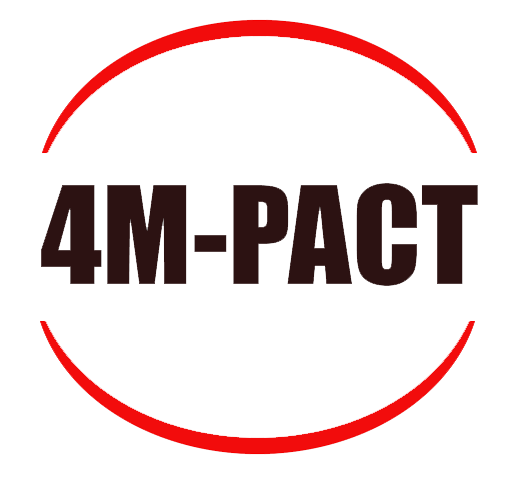One-on-One Coaching
Zoot can help CEOs through specific issues troubling their organization as an executive coach. Coaching includes help with budgets, boards, fund & resource development, earned income streams, building an endowment, and more. Whatever is foggy, Zoot can help make clear.
Cohort Coaching
Do you have a group of 3-5 leaders who are part of your network and want coaching? Consider Cohort Coaching where you split the fees which reduce the costs of training by 20-33%. In many cases this can be more productive as the cohort can offer more help and insights.
Social Impact Leadership Programs
Book the full program or shorter versions for one day or a half day.
Zoot can help clients add 20% to their capacity in 18-24 months and train new sector leaders for success.
The Participants:
New CEOs of 501(c)3 public benefit exempt organizations
Staff of organizations looking to become a CEO
Students who want to be leaders in community organizations
Operating board members of small organizations
Prerequisites: Participants should have a working basic knowledge of:
501(c)3 public benefit exempt organizations: what they are and how they work
A basic budget
Basic concepts of planning, budgeting, fundraising, marketing, and programs as they relate to 501(c)3 public benefit exempt organizations
A laptop or smart pad with MS Office or Google Drive apps
WHAT? 30-hours intensive training over 8 weeks or over a single weekend retreat. The program is concentrated on topics and tasks needed to lead an organization such as leadership, management, supervision, innovation, vision planning, fund development, strategic partnership, board development, staff development, program development, grantsmanship, marketing, and succession planning. The program and book are research-based from a study Zoot conducted for the Gianneschi Center on organizations who grew during the Great Recession against the trend.
SEE A 2 MIN VIDEO OF A PREVIOUS PROGRAM (Opens in a new window)
Where? On Zoom or In-person at your space or a retreat center.
WHY? There are few (and far between) organizations doing comprehensive training for new community leaders to become Social Impact CEOs. We fill that void. Zoot has been through the best leadership programs available and now teaches them at the college level. He has literally written the book on it. This will be your textbook and is included in the program cost. This training approximates the level of intensity and focus the CEO position can require at its most stressful time. It is designed to help participants leave with best practices and knowledge to lead; a stronger, wider network of support; and the confidence to know they can handle the stress of the job. It can also help senior staff prepare for the CEO role, thereby increasing DEI goals in the field.
HOW? Several in person and online options can be produced.
SCHEDULE
CLASS 1. Introduction-
90 min lecture on 7 Steps Process
60 min of independent support study
30 min: TEAMS- Form groups & Create a ficticious organization Name/Mission/Vision/Logo
Total Time: 3 Hours
CLASS 2. STEP 1: NEED- Needs Assessment- Needs Assessment, Mission, Theory of Change
90 min lecture
60 min of independent support study
60 min: TEAMS- Create a Needs Assessment, SWOT, and first half of Resource Map as a group
Total Time: 4 Hours
CLASS 3. Step 2: GATHER- Gathering strategic partners and resources to your cause
120 min lecture
60 min of independent support study
60 min: TEAMS- Create a Resource Map and an Evaluation
Total time: 4 Hours
CLASS 4. Step 3: LEAD- Establishing Leadership of Stakeholders
120 min lecture
60 min of independent support study
60 min: TEAMS- Create a Board Packet
Total time: 4 Hours
CLASS 5. Step 4: PLAN- Strategic Planning
90-min lecture
60 min of independent support study
60 min: TEAMS- Create a Strategic Plan
Total time: 4 Hours
CLASS 6. Step 5: DO- Grant Writing & Program Design
90-min Lecture
60 min of independent support study
30 min Pitch Coaching
90-min: TEAMS- Create a Program Design/Grant from pitch and translate it to a Letter of Intent
Total time: 4 hours
CLASS 7. Step 6: TELL- Marketing
90-min lecture
60 min of support study
60 min: TEAMS- Create an Experience Plan, Web Home Page, and Appeal Letter
Total time: 4 hours
CLASS 8. Step 7 GROW, Graduation Day, Pitches, and Guest Funder
30 min lecture summary and Step 7: Grow
30-min Experience Plan Presentations from TEAMs
30-min Pitch Presentations from TEAMS
60-min lecture and Q&A with Guest Funder
30-min: Graduation & Hot Wash
Total time: 3 hours
NOTE: Six Addition hours may be needed with TEAMS outside of class
Total Program Time: 30 Hours
At end of the project you will have templates for the following (which you will have experience creating as a TEAM):
A Mission Statement
A Vision Statement
A Logo
A Needs Assessment & Logic Model with a Case for Funding/Theory of Change
A Resource Map
A SWOT (& Evaluation Report Template)
A Board Packet
A 3-Year Strategic Vision Plan
A Pitch for Funding (with feedback from a guest funder)
A Grant
A Letter of Intent
An Annual Appeal Letter
A Marketing Experience Plan
A Gianneschi Fellowship Social Enterprise Leadership Certificate of Completion
Zoot created the first STEAM programs in Orange County winning local, regional and statewide awards, and quadrupling the capacity of the education programs at his organization. STEAM is the new STEM and finally brings funding to the arts. Let Zoot show you how it works and design some programs for you. Zoot is trained in & certified in the Visual & Performing Arts state standards (CA), Common Core and Every Child Succeeds Act passed by congress in 2016 incorporating STEAM.
Institutional Arts Program Design
Zoot started working in prisons, foster care and juvenile halls in 1990. He manages Arts In Corrections programs for the California Arts Council and California Department of Corrections and Rehabilitation for 17 years. He can help you design programs that work for special populations in institutional setting and train artists to work in institutional environment.


